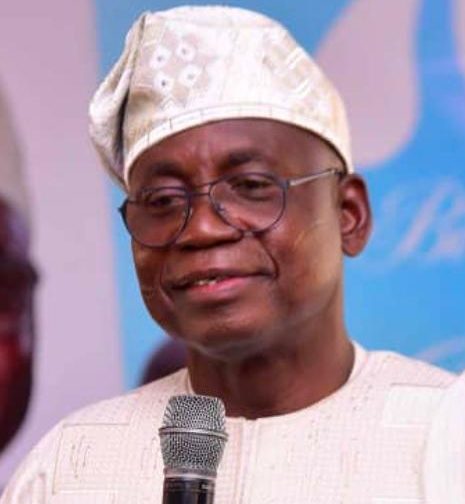Capt. Olugbemiga Abidoye, a former Executive Director, Marine and Operations of the Nigerian Ports Authority (NPA), has emphasised the indispensable role of dockworkers in ensuring the success of global trade.
Speaking at an event organised by the Nigerian Maritime Administration and Safety Agency (NIMASA) on Wednesday to mark the 2024 Dockworkers Day in Lagos, he said dockworkers are the unsung heroes of global trade. The theme of the event was “Safety First, Efficiency Always.”
“Their hard work and dedication keep the supply chains moving, and we owe them a safe and conducive working environment that reflects their importance to the nation’s economy,” he said.
Capt. Abidoye, who also served as the pioneer Managing Director of Greenview Development Nigeria Limited (GDNL), the port operating arm of Dangote Group, stressed that safe and effective cargo handling is vital to preventing accidents, injuries, and fatalities.
Citing global statistics, he noted, “The International Labour Organisation has consistently flagged the port and dock industry as one of the most hazardous. Unsafe practices lead to devastating losses, including the 1,382 containers lost at sea in 2020. We cannot afford such risks in Nigeria.”
Reflecting on the pre-reform state of Nigerian ports, he highlighted inefficiencies caused by manual cargo handling processes, aging infrastructure, and inadequate training for dockworkers. “Before the 2006 reforms, our ports were bogged down by inefficiency and safety lapses. The system of engagement for dockworkers was particularly disheartening. The infamous Integrated System led to low morale, errors, and unsafe practices,” he explained.
The reforms of 2006 brought significant improvements, driven largely by private sector participation and investments by terminal operators.
Capt. Abidoye commended these efforts, saying, “The introduction of modern cargo handling equipment and compliance with international security standards has improved productivity and vessel turnaround times. But we still face challenges like aging infrastructure and the slow adoption of cutting-edge technologies like IoT and automation.”
On the subject of dockworker welfare, Capt. Abidoye was unequivocal in his support for fair and secure employment practices.
“The daily paid system of engagement was not just unfair — it was detrimental to morale and safety. The shift to the payment by tonnage system in 2002 was a game-changer, providing dockworkers with stability and a sense of dignity,” he remarked.
He also praised the GDNL model of permanent employment for dockworkers, describing it as “a bold step aligned with global best practices.”
Drawing comparisons with ports in Europe and the United States, he said, “Ports like Rotterdam, Antwerp, and Los Angeles employ dockworkers on a permanent basis, ensuring job security, training opportunities, and fair compensation. This is a model we must fully embrace in Nigeria to remain competitive.”
The revered port administrator also highlighted the importance of fostering a safety-first culture in Nigerian ports.
“Proper training, regular maintenance of equipment, and adherence to safety protocols are non-negotiable. A positive and motivated workforce is essential for enhanced productivity and fewer accidents,” he asserted.
He commended the contributions of key stakeholders, including Nigerian Ports Authority (NPA), NIMASA, terminal operators, and the supervising Ministry.
“The reforms we’ve seen are a testament to the collaboration between these entities. I particularly want to commend the dockworkers themselves and their union leaders, whose commitment to peace and stability has been instrumental in creating a conducive working environment,” he said.
Looking to the future, Capt. Abidoye called for sustained efforts to modernise Nigerian ports.
“We must focus on making our ports SMART—safe, modern, agile, resilient, and technology-driven. By investing in infrastructure and embracing automation, we can position our ports as leaders in Africa and beyond,” he concluded.
